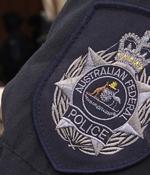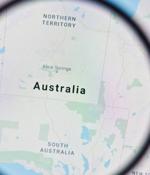Security News

The Australian Competition & Consumer Commission says Australians lost a record $3.1 billion to scams in 2022, an 80% increase over the total losses recorded in 2021. Most of the losses concern investment scams, which accounted for $1.5 billion, followed by remote access scams that resulted in losses of $229 million, and payment redirection scams that cost victims another $224 million.

The Australian Federal Police has arrested four members of a cybercriminal syndicate that has laundered $1.7 million stolen from at least 15 victims between January 2020 and March 2023. Eventually, two men and two women aged between 26 and 35 were arrested in Brisbane, Melbourne, and Adelaide.

Latitude Financial has blamed a supplier for leaking creds that caused vast PII leak Australian outfit Latitude Financial has taken itself offline, and even stopped serving customers, while it tries to clean up an attack on its systems. Latitude said the attack on the vendor exposed credentials of its staff, which were used to log on to two other service providers it uses for matter such as identity verification.

Asia In Brief ByteDance, the Chinese developer of TikTok, "Can no longer be accurately described as a private enterprise" and is instead intertwined with China's government, according to a report [PDF] submitted to Australia's Select Committee on Foreign Interference through Social Media. The report alleges that China's government noticed as Douyin - the Chinese version of TikTok - boomed.

The Australian Federal Police arrested a woman in Werrington, Sydney, for allegedly email bombing the office of a Federal Member of Parliament. Email bombing is an online attack where attackers bombard an email address with thousands of emails to overwhelm a recipient's inbox or mail server.

Australia's Fire Rescue Victoria has disclosed a data breach caused by a December cyberattack that is now claimed by the Vice Society ransomware gang. Fire Rescue Victoria is a fire and rescue service operating across 85 stations in the Australian state of Victoria that has approximately 4,500 operational and corporate employees.

A wave of Gootkit malware loader attacks has targeted the Australian healthcare sector by leveraging legitimate tools like VLC Media Player. Like other malware of its kind, Gootkit is capable of stealing data from the browser, performing adversary-in-the-browser attacks, keylogging, taking screenshots, and other malicious actions.

Australian Clinical Labs has disclosed a February 2022 data breach that impacted its Medlab Pathology business, exposing the medical records and other sensitive information of 223,000 people. While the firm says it's not aware of any misuse of the stolen information, it is notifying all impacted clients individually of what data was exposed in the attack.

Australian health insurance firm Medibank on Wednesday disclosed that the personal information of all of its customers had been unauthorizedly accessed following a recent ransomware attack.In an update to its ongoing investigation into the incident, the firm said the attackers had access to "Significant amounts of health claims data" as well as personal data belonging to its ahm health insurance subsidiary and international students.

Health insurance provider Medibank has confirmed that a ransomware attack is responsible for last week's cyberattack and disruption of online services.Medibank Private Limited is one of Australia's largest private health insurance providers, covering over 3.7 million people and having 4,000 employees.